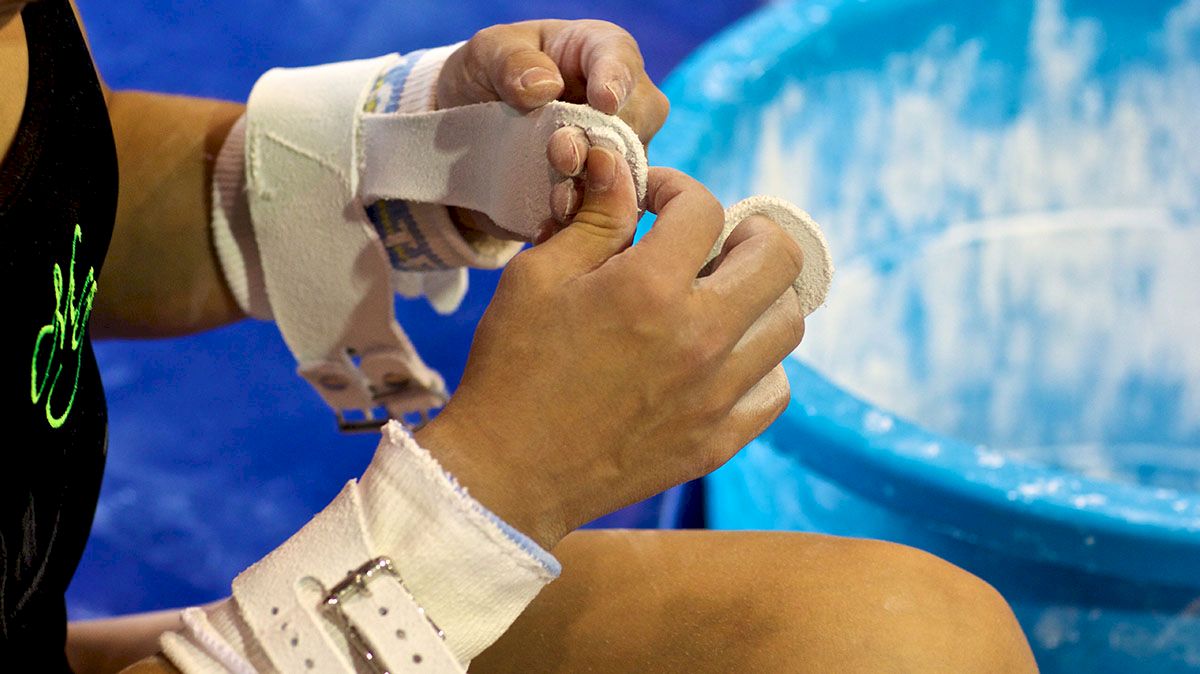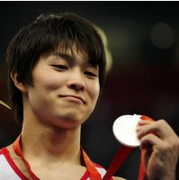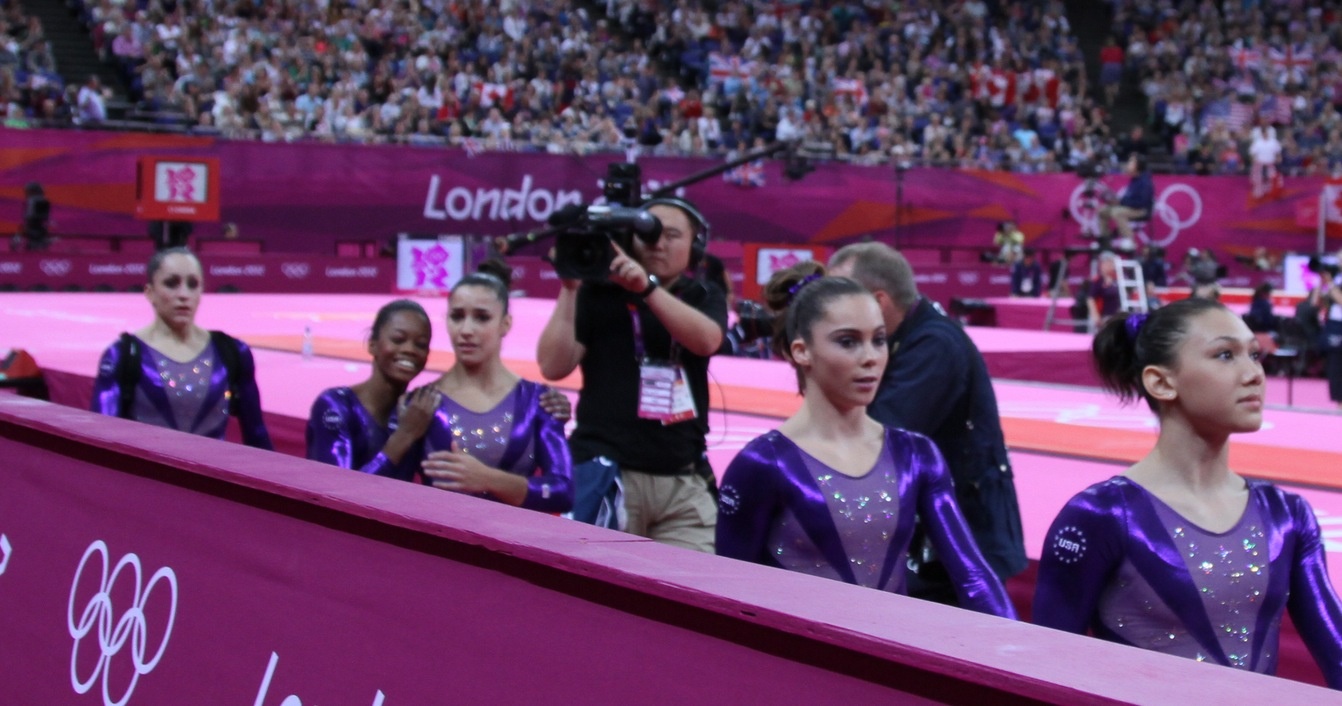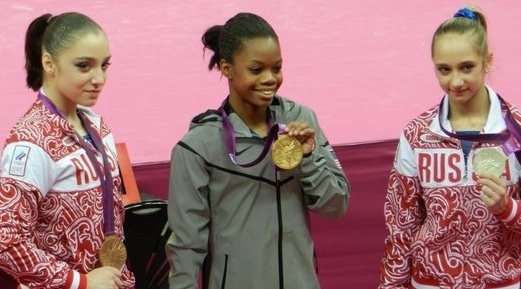2012 London OlympicsJul 10, 2013 by Elizabeth Stranahan
Debatable Moments: Part 3
Debatable Moments: Part 3
Debatable Moments: Part 3

Not ready to quit quarrelling just yet? Well, you're in luck, as we enter the third and final leg of our Debatable Moments series. Last on the list are the London Olympics. The 2012 Games brought glory and gratification to many athletes who worked their entire lives to reach this moment, but the pretigious event did not transpire without leaving a few festering sores that we plan on ripping open and analyzing today. Brace yourself as we venture into the last of our climactic Olympic clashes.
The London Low Down

Kohei Uchimura of Japan with his hard-earned silver medal in the team finals.
As we head to our most recent Olympic cycle locale, the men again take center stage. This time, we start at the last last rotation of the men's team final. Kohei Uchimura of Japan stepped up to take his turn on the pommell horse as the last competitor on the event. Uchimura needed a clean routine to easily ensure Japan's second place finish. Regarded as one of the best gymnasts on the Japanese team and heavy favorite for the all around final, many fans were already wiping the sweat from their brows as Uchimura sailed through the exercise. All signs pointed to a Silver for the Japanese, but as Uchimura started the dismount, the winds quickly shifted; Uchimura stumbled, bumbled, and tipped right off the apparatus. The mistake turned disasterous when the judges awarded the routine a measly 13.466 placing Japan not second, not third, but off the podium entirely. The arena erupted simultaneously with euphoria and iration as athletes and fans alike came to grips with the new standings. In no time at all, the Japanese launched a score inquiry to discuss Uchimura's routine, specifically his dismount. The Japanese protested that while the skill clearly deserved a large deduction, it had been completed meaning it required credit.
Just as the stands started into full swing of their festivities, "Inquiry Accepted" emerged on the score board. The judges overturned their previous decision, deciding to award Uchimura credit for his dismount. With a new score of 14.166, Japan slid up to second place replacing Great Britian and demoting Ukraine back to fourth. So the controversy stands: did Uchimura deserve credit for the dismount, or were the tenths of a point that drastically altered the fate of the British and Ukrainian hopeful improperly assigned? Let us know in comments.
Finally, we reach the well publicized, but not well agreed upon two athletes per country rule that exploded when Americans Gabby Douglas and Aly Raisman beat out fellow teammate Jordyn Wieber for spots in the individual all around final.

Team USA marches out of the Olympic stadium as Jordyn Wieber tries to absorb the results. Photo by Grace Chiu.
At the 2012 All Around final qualifications, All Around favorite and 2011 World Champion Jordyn Wieber found herself in third, behind teammates Aly Raisman and Gabby Douglas. Generally third on one of the most highly regarded gymnastics squads in the world is not a bad position to fall, but for Wieber third was as good as last because the in the Olympic Games only the top two contenders from each country advance to the all around final. To add insult to injury, Wieber placed fourth in overall qualifications meaning despite performing as one of the best in the world, she was bested by her own team that day and would not move forward in the competition. Despite the clarity of the rule, fans began voicing their outrage stating they would rather see the best all around competitors instead of the most diverse set of competitors. Many also lashed out at the rule stating it was new, unfair, and ought be overturned...immediately.
The rule, while debateably unfair--feel free to jump in here--is not new. Limiting event finals to two gymnasts per country has been in operation since the 2004 Athens Games. Prior to 2004, countries were limited to three gymnasts per final, a rule that dates back to the mid-seventies. The premise behind the rule is to keep dominating countries from sweeping the entire podium. It also gives more exposure to other countries who have talented gymnasts, but may not take center stage during the team finals. More countries participating in finals also spreads adoration of the sport, theoretically at least. Young athletes see gymnasts from their home countries representing and, in turn, aspire to pursue similar athletic succeess.

As noble as the aims may be, limiting countries to two or three gymnasts also means that many top qualifiers, like Wieber, are shut out from one of the most exciting competitions of the Olympic Games. In the 2012 qualification alone, Anastasia Grishina of Russia, Jennifer Pinches of Great Britain, and Jinnan Yao of China all placed in the top 24, but ranked third amongst their own team, so they did not proceed to the final. It should also be noted that this rule does not apply only to the all around final, but to all event finals meaning Qiushuang Huang of China, Kyla Ross of USA, and Wieber again were all prevented from competing in other event finals despite their top 8 finishes.
So the debate rages on, should Wieber and other top gymnasts miss out on the all around final for the sake of diversity and exposure, or does the rule require reevaluation? Feel free to debate, but you will likely need to persuade the FIG for any action to take place.
And so wraps up our most talked about gymnastics controversies. Thanks for your input and help in making this list! Have an opinion or a favorite debate we didn't cover? Tell us about it the comments. And until the next controversy crops up, happy bickering Gymnastike fans.
Related:
Missed out on the fun? Read about all the great gymnastics controversies in Part 1 and Part 2 of the Debatable Moments series.
Did Wieber deserve to compete in the AA final or should the 2/country rule stand? Let us know in the poll!